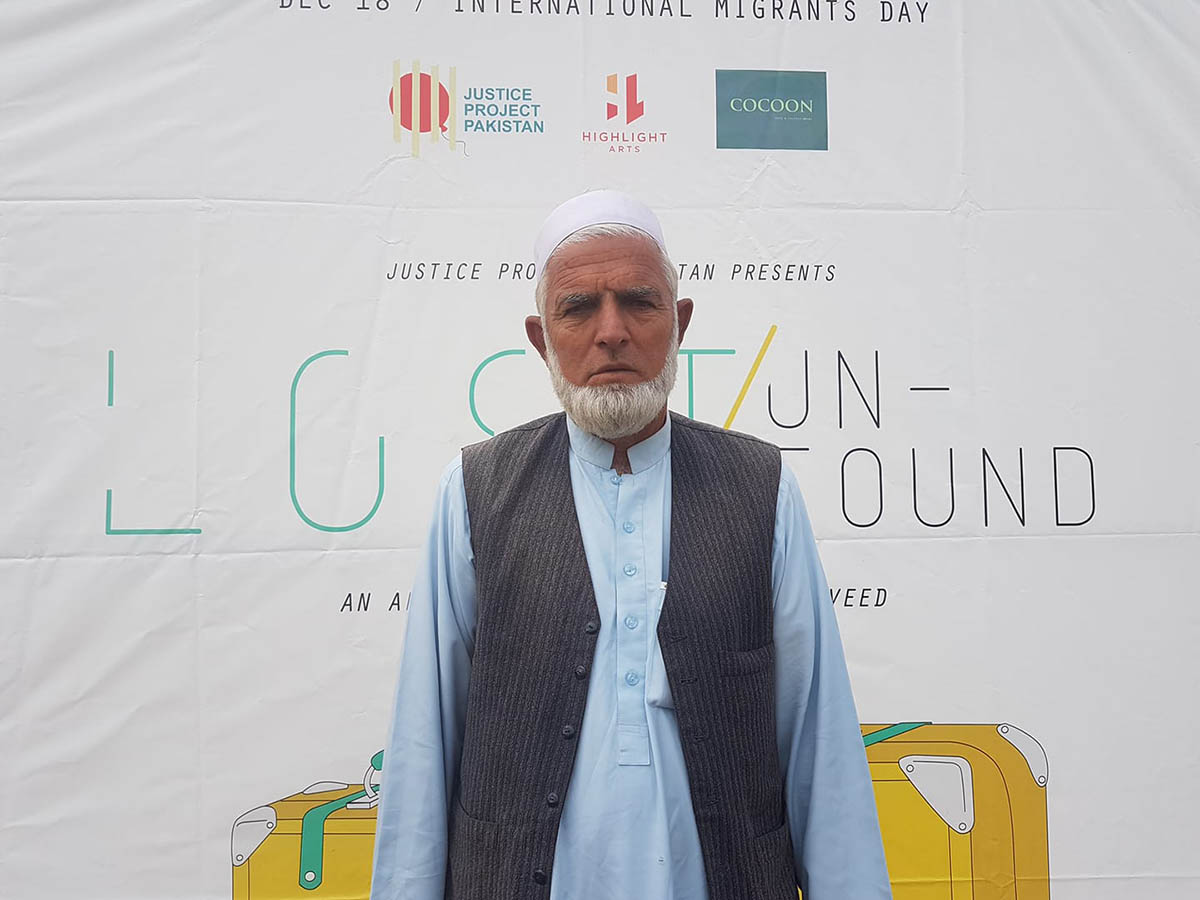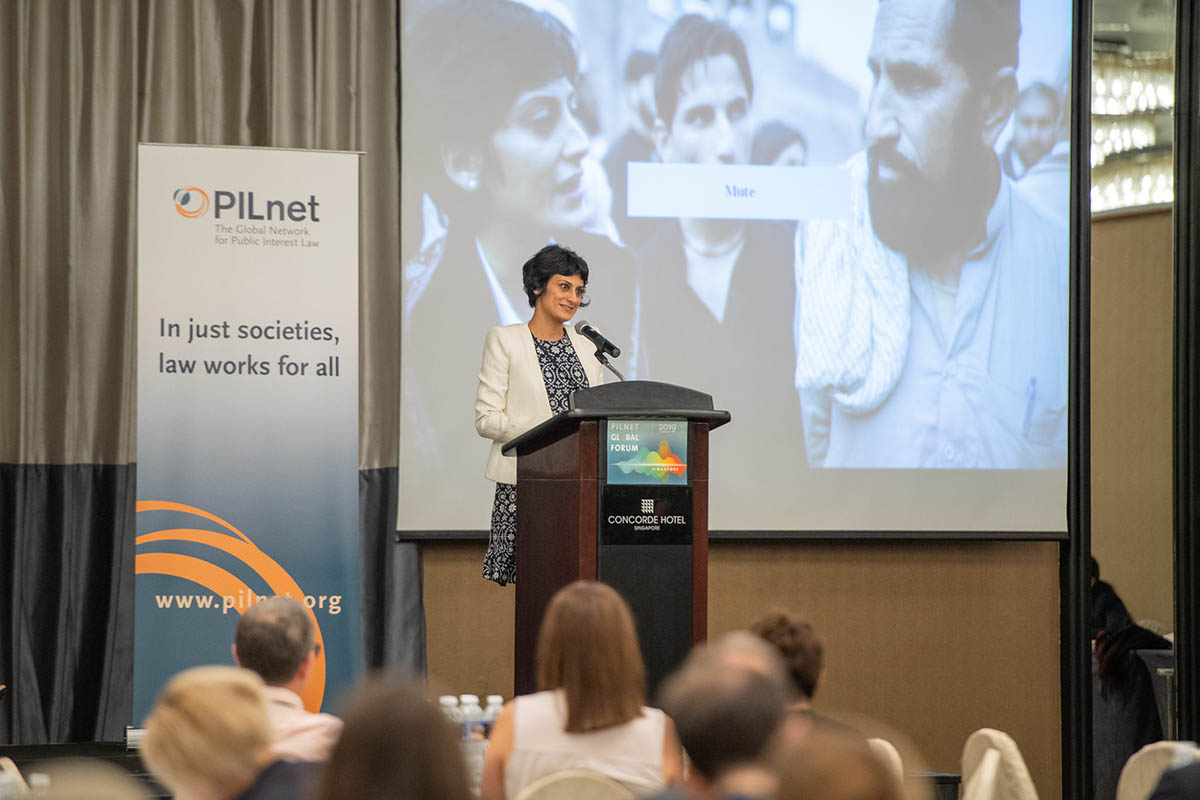Written by: Mahnoor Fatima
Posted on: December 19, 2019 |  | 中文
| 中文
Lost/Un-found Art Installation (photo credits to the writer)
A strange site appeared yesterday in the otherwise quaint Fatima Jinnah Park, Islamabad. Stacks of boxes and bags sat atop a patch of grass, obstructing the peaceful view of the cloudy skies and green hills. They are not here by accident. To commemorate International Migrant’s Day, Justice Project Pakistan (JPP) put up an art installation to draw attention to the vast number of migrant workers who are languishing in foreign prisons.
According to JPP, there are over 11,000 Pakistanis imprisoned abroad in places such as Saudi Arabia, Oman, the United Arab Emirates, Greece, India, etc. Those imprisoned are often migrant workers from underprivileged communities, who work as unskilled laborers to send remittances back home. As per JPP’s testimonies, many are duped or coerced into peddling drugs or are trafficked into foreign countries. When they are imprisoned, they are unable to communicate their case, provide evidence from Pakistan and they have little to no understanding of the laws of the foreign country that has imprisoned them.
The Government of Pakistan is obligated by the constitution to protect the fundamental rights of these migrant workers. It is the government’s duty to provide legal aid, translators, communication back home, as well as consular assistance. Although JPP often litigates on prisoners’ behalf, they are more known for their interactive, performance-based pieces which inform the public about the unjust treatment of Pakistan’s prisoners. Last year, they collaborated with actor Sarmad Khoosat, to televise a performance of the last 24 hours of a death row prisoner.

Wakeel Khan, father of an imprisoned migrant worker, at the ribbon cutting ceremony (photo credits to Justice Project Pakistan)
As the team leader of communications at JPP, Ali Haider Habib, pointed out, “We feel that when someone experiences a piece of art or an art installation, there’s no barrier between them and the art. The emotions that they feel are not dictated by anyone, there is no agenda. It is just to call attention to the plight of these prisoners who are not accorded their due rights.”
“Lost/Un-found” is a collaboration between JPP and journalist/storyteller Fahad Naveed. He became inspired by JPP’s recorded testimonies of migrant workers and their families. While it was important for him to accurately tell people’s stories, he too is taken aback by the number of tragic circumstances which need to be addressed. He said, “One thing that really strikes me is are the numbers itself, and the scale of the problem. And I wanted to represent that.”
The installation is a collection of 1100 pieces of luggage of all sizes, both old and new, scattered across a small patch of land which overlooks the hills. There is a wave of noise that surrounds the tower of shabby suitcases, urging one to come closer. But what initially sounds like incoherent noise from afar, are the testimonies of some of the prisoners and their families played on a loop. As one gets closer to each suitcase, and hears the testimony, one is overwhelmed with emotion by the stories of pain and confusion, and hopelessness. All the suitcases represented the dreams and aspirations of those who left the country in the hope of a better life for themselves and their families. Where do these dreams and their possessions go when there is no one to claim them?
The disruptive quality of the art piece seemed to be successful in piquing people’s curiosity. Joggers and park visitors curiously inspected the tower of suitcases, and would eventually approach the structure. Some even earnestly asked if they could take the bags home for themselves. But, it was moving to see people talk to JPP’s team about incarcerated migrant workers; some even talked about their family members who had suffered hardships and tragic fates as migrant workers.
At the official artist’s meet-and-greet/ribbon cutting ceremony, Senator Seemi Ezdi spoke to JPP Executive Director Sarah Belal, as well as families of migrant workers who are imprisoned abroad. Students of law from all over the city came to engage with team JPP, and visit the installation. Visitors could also sign a petition urging the government to create a uniform consular protection policy for prisoners abroad, as well as negotiate foreign agreements on the transfer of these prisoners.
This exhibit is not just to highlight JPP’s efforts with incarcerated migrants, but also to show how stories and art can bring people together for a cause that may not always be shown in mainstream media. As Belal remarked, “There is a power in art to move the coldest of hearts…the government must wake up to this nightmare and do all in its power to ensure these indigent prisoners are not deprived of their fundamental human rights, as guaranteed under the Constitution of Pakistan.”

Justice Project Pakistan's Executive Director, Sarah Belal (photo credits to Jusice Project Pakistan)
The installation will remain on display on 19th December at Fatima Jinnah Park till 7:00 pm. To follow Justice Project Pakistan’s work, readers can find them on Facebook, Twitter, and Instagram.
You may also like: